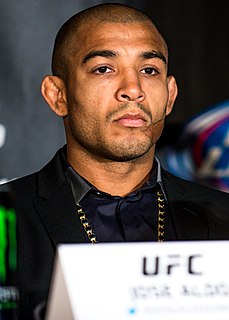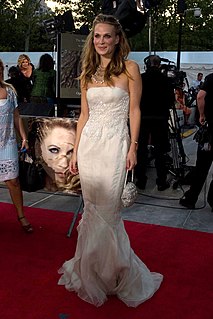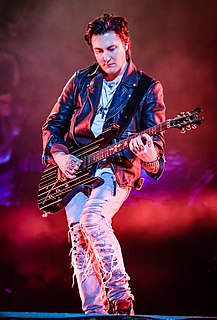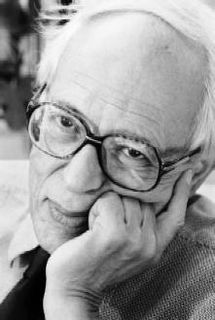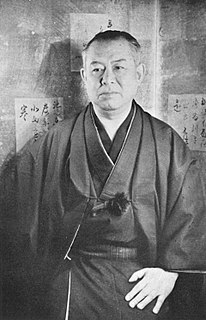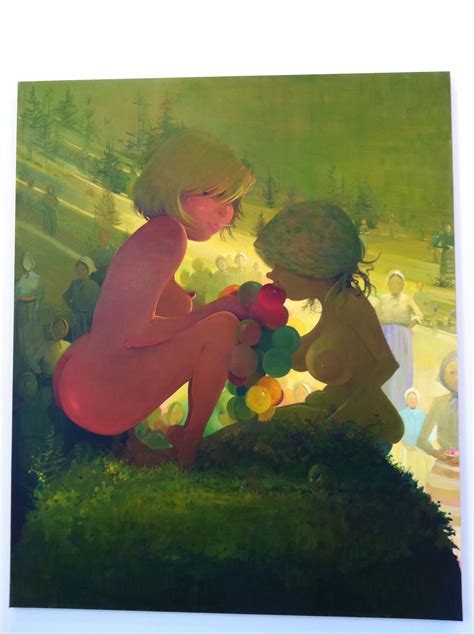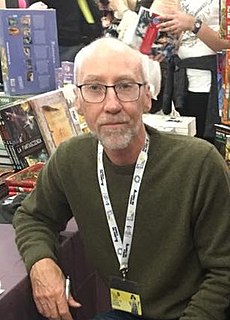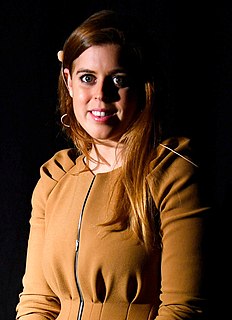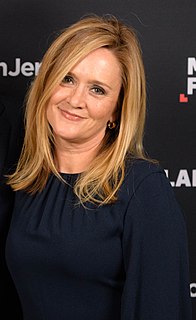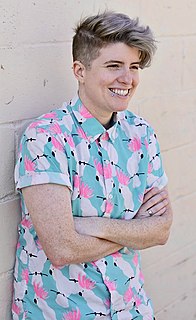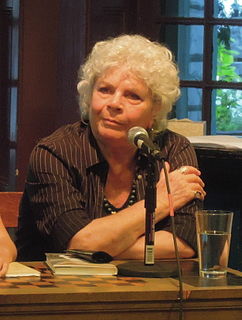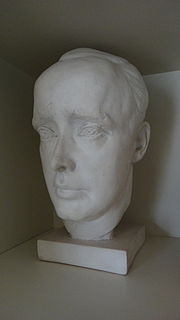Top 1200 Reading Literature Quotes & Sayings - Page 17
Explore popular Reading Literature quotes.
Last updated on November 6, 2024.
Literature was not promulgated by a pale and emasculated critical priesthood singing their litanies in empty churches - nor is it a game for the cloistered elect, the tinhorn mendicants of low calorie despair. Literature is as old as speech. It grew out of human need for it, and it has not changed except to become more needed. The skalds, the bards, the writers are not separate and exclusive. From the beginning, their functions, their duties, their responsibilities have been decreed by our species. --speech at the Nobel Banquet at the City Hall in Stockholm, December 10, 1962
In fantasy stories we learn to understand the differences of others, we learn compassion for those things we cannot fathom, we learn the importance of keeping our sense of wonder. The strange worlds that exist in the pages of fantastic literature teach us a tolerance of other people and places and engender an openness toward new experience. Fantasy puts the world into perspective in a way that 'realistic' literature rarely does. It is not so much an escape from the here-and-now as an expansion of each reader's horizons.
So we start with an oversignifying reader. Those texts that appear to reward this reader for this additional investment - text that we find exceptionally suggestive, apposite, or musical - are usually adjudged to be 'poetic'. ... The work of the poet is to contribute a text that will firstly invite such a reading; and secondly reward such a reading.
Writing, or at least good writing, is an outgrowth of that urge to use language to communicate complex ideas and experiences between people. And that's true whether you're reading Shakespeare or bad vampire fiction-reading is always an act of empathy. It's always an imagining of what it's like to be someone else.
Kafka often describes himself as a bloodless figure: a human being who doesn't really participate in the life of his fellow human beings, someone who doesn't actually live in the true sense of the word, but who consists rather of words and literature. In my view, that is, however, only half true. In a roundabout way through literature, which presupposes empathy and exact observation, he immerses himself again in the life of society; in a certain sense he comes back to it.
The market literature, which was particularly strong in Igboland, in Onitsha, today it is no longer strong. It is one of the victims of the civil war, that market was actually destroyed and at the end of the war a new Nigeria has struggled to come into being and I believe that what is probably going to replace the market literature might be the video, which they have taken to in a big way, creating dramas. So that may be the next thing way we will see coming out of the local basic level in our society.
Literature gives us models of living human beings who may not agree with us and even be our enemies. D. H. Lawrence said that the purpose of literature was to expand our sympathies. To be a human being is to be in a state of tension between your appetites and your dreams, and the social realities around you and your obligations to your fellow man. And this conflict cannot be easily reconciled. The tension is always there as a kind of a pain in the human condition.
The love of writing comes at a very early age. For me, for instance, comic books so affected me. And a lot of people who come up to me and start talking about writing, when I start talking to them about the "Fantastic Four," they look at me aghast. They say, "'The Fantastic Four?' That's not literature." I say, "Yeah, but it was when I was 11 years old." This was literature.
Our singer, Matt, was reading Stephen Hawking and other physics-related books, and I was reading entrepreneurial books, and we all started discussing the new technologies that were taking over the world, from 3-D printing to space travel. These conversations starting leading us to think of how we could portray these things in a musical way.
Every child's taste is different. Don't worry if they're not reading 'War and Peace' at age 12. First, build a good foundation and a positive attitude about reading by letting them pick the stories they enjoy. Make friends with a bookseller or librarian. They are a wealth of information on finding books that kids enjoy.
If I had millions and millions and millions of dollars, I'd leave a large portion to the 42nd Street library. That's why - that was my hangout, the reading rooms, the North and South reading rooms. I'd go there, and my God, I couldn't believe I had access to all of these books. That was my university.
Some years ago John Kenneth Galbraith wrote in an essay on his efforts at writing a history of economics: 'As one approaches the present, one is filled with a sense of hopelessness; in a year and possibly even a month, there is now more economic comment in the supposedly serious literature than survives from the whole of the thousand years commonly denominated as the Middle Ages ... anyone who claims to be familiar with it all is a confessing liar.' I believe that all physicists would subscribe to the same sentiments regarding their own professional literature. I do at any rate.
I still have a struggle reading (dyslexia, fh) and so I don't read much.. ..Probably the only reason I'm painter is because I couldn't read yet I love to write, but when I write I know what I'm writing, but when I'm reading I can't see it, because it goes from all sides of the page at once. But that's very good for printmaking.
I would call back at least for literature this world of shadows we are losing. In the mansion called literature I would have the eaves deep and the walls dark, I would push back into the shadows the things that come forward too clearly, I would strip away the useless decoration. I do not ask that this be done everywhere, but perhaps we may be allowed at least one mansion where we can turn off the electric lights and see what it is like without them.
We had this neighbor who was an actor, and he was going to an audition one day, driving by our house, and he asked if I wanted to tag along. He was reading for the part of the father, and they were reading for the part of the son the same day, and he told me to sneak in there and make it look like I knew what I was doing.
Whoever's reading this, if anyone is reading it: does it matter that our old selves are lost to us as surely as the past is lost, or is it enough to know yes we lived then, and we are living now, and the connection must be there? Like a river hundreds of miles long exists both at its source and at its mouth, simultaneously?
I'll wait to see what the film [The Lobster] is, but it's set in a contemporary world, in America, there are hospitals and diners, parks, things that we will recognize and experienced ourselves but yet there's this similar kind of uneasiness through all the interactions and all the things that take place. It was unnerving reading the script. I kind of felt nauseous after reading it.
In novels you're able to occupy character's internal thoughts and it's really hard to do in a film or a TV show. When you're reading a character's thoughts or when it's in first person, you're reading kind of their own story, so you have the opportunity to see what makes that character complex or complicated. And to me that's what the whole point of fiction is.
With the Black Company series Glen Cook single-handedly changed the face of fantasy—something a lot of people didn’t notice and maybe still don’t. He brought the story down to a human level, dispensing with the cliché archetypes of princes, kings, and evil sorcerers. Reading his stuff was like reading Vietnam War fiction on peyote.
When I was younger, I was diagnosed with dyslexia, which meant, for me, sitting in front of a book was really hard - until I discovered Harry Potter, and this character, this 11-year-old boy, who suddenly gets off to school for the first time, captured my imagination, and suddenly reading was fun. Reading was inspiring, and I was motivated.
I was always much impressed, in reading prison memoirs of revolutionists, such as Lenin and Trotsky ... by the amount of reading they did, the languages they studied, the range of their plans for a better social order. (Or rather, for a new social order.) In the Acts of the Apostles there are constant references to the Way and the New Man.
We're at an interesting phase of Asian and Asian-American writing, where we might succeed in having readers look at us as creative individuals who write with fury and fire about the world, and in new ways, without having them say things like "I read a really good Indian book," or "That Malaysian fellow writes very well." So I hope by identifying as Indian I can get people who don't usually read "ethnic" or "Indian" literature to read that literature and enjoy it.
For a while I got into the South Pacific theater of World War II. I read "American Caesar" by William Manchester, the biography of General MacArthur. Because of that I ended up reading "Tales of the South Pacific" by James Michener and then because of that reading his "Hawaii." That is what happens.
For those of us who take literature very seriously, picking up a work of fiction is the start of an adventure comparable in anticipatory excitement to what I imagine is felt by an athlete warming up for a competition, a mountain climber preparing for the ascent: it is the beginning of a process whose outcome is unknown, one that promises the thrill and elation of success but may as easily end in bitter disappointment. Committed readers realize at a certain point that literature is where we have learned a good part of the little we know about living.
This act of empathy, that women go through from the time we're little girls - we read all of literature, all of history, it's really about boys, most of it. But I can feel more like Peter Pan than Tinker Bell, or like Wendy. I wanted to be Tom Sawyer, not Becky. And we're so used to that act of empathizing with the protagonist of a male-driven plot. I mean, that's what we've done all our lives. You read history, you read great literature, Shakespeare, it's all fellas, you know?
I think that the Bible as literature should be a compulsory part of the national curriculum.. you can't understand English literature and culture without it. But insofar as theology studies the nature of the divine, it will earn the right to be taken seriously when it provides the slightest, smallest smidgen of a reason for believing in the existence of the divine. Meanwhile, we should devote as much time to studying serious theology as we devote to studying serious fairies and serious unicorns.
I spent so much of my life reading about spirituality and reading about neuroscience and trying different meditation practices. It's a really big part of my life. But it's sometimes hard to talk about. There are so many people in the world who don't live in Southern California and don't spend their time meditating.
Reading has always been my home, my sustenance, my great invincible companion. "Book love," Trollope called it. "It will make your hours pleasant to you as long as you live." Yet of all the many things in which we recognize some universal comfort...reading seems to be the one in which the comfort is most undersung.
I moved here when I was 20 to go to college. After I moved here, I became much more aware of the importance of the culture and literature to my life. Sometimes when you're immersed in something, you just don't notice it very much. Moving away makes you appreciate your culture. Living here, I've thought more and more about India, and what being Indian-American means to me. And it's made me incorporate things from Indian literature into my own writing.
Literature presents you with alternate mappings of the human experience. You see that the experiences of other people and other cultures are as rich, coherent, and troubled as your own experiences. They are as beset with suffering as yours. Literature is a kind of legitimate voyeurism through the keyhole of language where you really come to know other people's lives--their anguish, their loves, their passions. Often you discover that once you dive into those lives and get below the surface, the veneer, there is a real closeness.
The written word, obviously, is very inward, and when we're reading, we're thinking. It's a sort of spiritual, meditative activity. When we're looking at visual objects, I think our eyes are obviously directed outward, so there's not as much reflective time. And it's the reflectiveness and the spiritual inwardness about reading that appeals to me.
I have read so many books. And yet, like most Autodidacts, I am never quite sure of what I have gained from them. There are days when I feel I have been able to grasp all there is know in one single gaze, as if invisible branches suddenly spring out of no where, weaving together all the disparate strands of my reading. And then suddenly the meaning escapes, the essence evaporates and no matter how often I reread the same lines they seem to flee ever further with each subsequent reading and I see myself as some mad old fool who thinks her stomach is full because she's been reading the menu.
I think training your instinct comes from writing and reading. There's no big secret. And reading slush helps, as well; I'd recommend everyone edit a literary magazine at some point. It's time-consuming, but there's a lot to learn from other writers who are also learning. The patterns (twelve stories about whales in this batch?) are also interesting.






